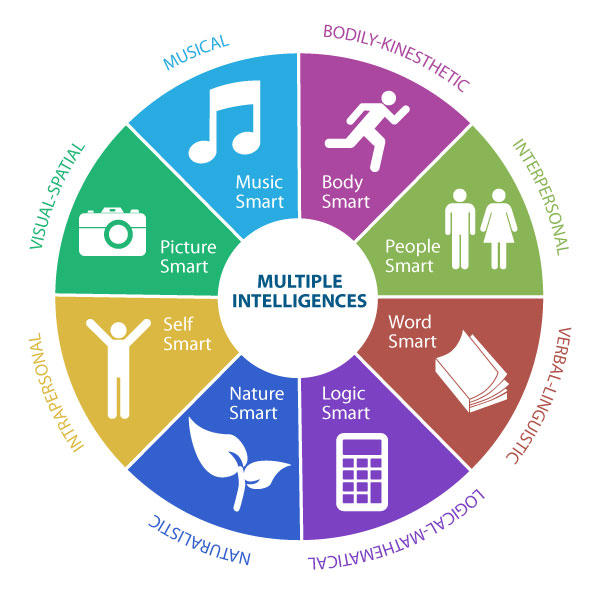
Just how smart are robots? It depends what you mean by “smart.” The theory of multiple intelligences suggests that human beings can be smart in seven distinct ways:
- Visual-Spatial intelligence is about awareness and understanding of visual information. The truth is, robots are rubbish at this. Facial recognition software can seem pretty smart with visual information because it goes through its painstaking methods fast, but automatic porn-sensing software can’t tell a naked person from a pink object, and robots with exciting new visual capacity can only identify things like the edges of pallets or the difference between a book and a spoon. Robots are definitely not smart in this sense.
- Bodily-kinesthetic intelligence refers to strong awareness of and control of the body, as in the aptitude and skill of a dancer or a surgeon. Anyone who has watched international robotics competitions in which robots lumber around, fall down, and are stopped in their tracks by the need to turn a door handle knows that robots are not smart in this sense.
- Musical intelligence is about music, rhythm, and sound. Robots (or at least software) have been trained to complete tasks involving music, but the average fie year old is better at music than specially-trained robots. Robots are not smart in this way.
- Interpersonal intelligence is about relationships with other human beings. The famed Turing Test asks robots to fool people into thinking they’re human. Apparently, a computer program was able to text with a human for five minutes in 2014 without being caught out as a robot. The robot was pretending to be a 13 year old boy and was talking with adults, so this may or may not be a true pass of the Turing test, but it’s certainly not evidence of a high level of interpersonal intelligence, and it’s the best performance so far by a robot, so — no, robots aren’t smart in this way either.
- Intrapersonal intelligence is about self-understanding. As far as we can tell, robots have no self-awareness at all, and are therefore not smart in this way.
- Linguistic intelligence is about language. In spite of an enormous amount of work and some real progress, robots are still very far from even an average level of ability with human language.
- Logical-Mathematical intelligence is where robots shine. Computers can use algorithms to do all kinds of calculations, some of which can lead to actions that mimic some of the other forms of intelligence, especially with mathematically precise motion control. Of course, robots only have logical-mathematical intelligence if it’s programmed into them, but once they’ve been programmed, they can be pretty impressive. One thing is for sure: robots are evidence of the logical-mathematical intelligence of the people who make them.
